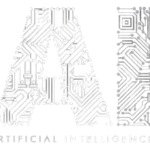Artificial Intelligence (AI) is revolutionizing various industries, and healthcare is no exception. From diagnostics to patient care, AI is reshaping how healthcare professionals operate and how patients experience medical services. In this blog, we will explore the significant ways AI is transforming healthcare, its benefits, and the challenges it presents.
What Is AI in Healthcare?
AI in healthcare refers to the use of advanced algorithms and software to analyze medical data, predict outcomes, and assist healthcare providers in making informed decisions. This technology encompasses various applications, including machine learning, natural language processing, and computer vision, which together help improve patient outcomes and streamline healthcare processes.
Benefits of AI in Healthcare
- Improved Diagnostics: AI algorithms can analyze medical images and data more quickly and accurately than human practitioners. This enhances diagnostic capabilities, enabling early detection of conditions like cancer and heart disease.
- Personalized Treatment Plans: AI can analyze a patient’s genetic makeup, lifestyle, and medical history to create tailored treatment plans. This personalized approach increases the effectiveness of treatments and improves patient outcomes.
- Predictive Analytics: AI can predict patient outcomes based on historical data and current health indicators. This helps healthcare providers anticipate complications and intervene early, ultimately saving lives.
- Enhanced Patient Engagement: AI-powered chatbots and virtual health assistants can provide patients with immediate responses to their queries, schedule appointments, and offer medication reminders, enhancing patient engagement and satisfaction.
- Operational Efficiency: By automating administrative tasks such as scheduling, billing, and data entry, AI can reduce the administrative burden on healthcare staff, allowing them to focus more on patient care.
Applications of AI in Healthcare
1. Medical Imaging
AI technologies like deep learning are used to analyze medical images, such as X-rays, MRIs, and CT scans. These algorithms can identify patterns that may be indicative of diseases, assisting radiologists in making more accurate diagnoses.
2. Telemedicine
AI enhances telemedicine platforms by providing virtual health assistants that can triage patients, gather medical histories, and suggest possible diagnoses before a healthcare provider reviews the information. This streamlines the telemedicine process and improves patient experience.
3. Drug Discovery
AI accelerates drug discovery by analyzing vast datasets to identify potential drug candidates and predict their efficacy. Machine learning models can simulate how different compounds interact with biological systems, significantly reducing the time and cost involved in bringing new drugs to market.
4. Clinical Decision Support
AI-powered clinical decision support systems analyze patient data to provide healthcare professionals with evidence-based recommendations. These tools help clinicians make informed decisions about diagnoses, treatment options, and care plans.
5. Remote Monitoring
Wearable devices equipped with AI technology can monitor patients’ vital signs in real-time, alerting healthcare providers to any concerning changes. This continuous monitoring allows for proactive management of chronic conditions and timely interventions.
Challenges of Implementing AI in Healthcare
While the benefits of AI in healthcare are substantial, several challenges must be addressed for successful implementation:
- Data Privacy and Security: Protecting patient data is paramount in healthcare. Ensuring that AI systems comply with regulations such as HIPAA (Health Insurance Portability and Accountability Act) is crucial to maintaining patient trust.
- Integration with Existing Systems: Integrating AI solutions into existing healthcare infrastructures can be complex and costly. Interoperability between systems is essential for seamless data exchange and improved efficiency.
- Bias in AI Algorithms: AI algorithms are only as good as the data they are trained on. If the training data is biased, the AI may produce skewed results, leading to disparities in healthcare outcomes.
- Resistance to Change: Healthcare professionals may be hesitant to adopt AI technologies due to fears of job displacement or skepticism about the reliability of AI-driven decisions. Ongoing education and training are essential to alleviate these concerns.
The Future of AI in Healthcare
As AI technology continues to evolve, its potential in healthcare will only grow. Future developments may include enhanced predictive analytics, improved patient-provider communication, and more sophisticated algorithms capable of understanding complex medical data. By embracing these advancements, the healthcare industry can improve patient care, increase operational efficiency, and ultimately save lives.
Conclusion
AI is transforming healthcare in remarkable ways, from improving diagnostics to enhancing patient engagement. By harnessing the power of AI technology, healthcare providers can deliver more personalized, efficient, and effective care. While challenges remain, the potential benefits of AI in healthcare are immense, making it an exciting area for innovation and growth.



